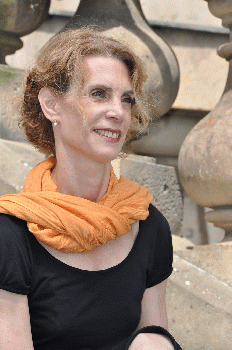Duluth, Minnesota (OpEdNews) July 16, 2023: Marcia Pally explores Donald J. Trump's right-wing populism in her wide-ranging and learned short book White Evangelicals and Right-Wing Populism: How Did We Get Here? (Routledge, 2022; for specific page references to Trump, see the entry on him in the "Index" [p. 140]). It is scheduled to come out in a paperback edition in the near future.
Pally is the distinguished author of the book Commonwealth and Covenant: Economics, Politics, and Theologies of Relationality (William B. Eerdmans Publishing, 2016) and of the book The New Evangelicals: Expanding the Vision of the Common Good (William B. Eerdmans, 2011). I have not seen her 2011 book.
Pally earned a B.Sc. degree from Cornell University in 1971; an M.A. degree in dance from the University of California, Los Angeles; and an Ed.D. degree from New York University in 1995. She teaches Multilingual Multicultural Studies at the New York University Steinhardt School of Culture, Education, and Human Development. She held the Mercator Guest Professorship in the Theology Faculty at Humboldt University in Berlin, where she continues as an annual guest professor each summer.
But in Trump's right-wing populism, does he typically use a theology of relationality in his rhetoric? No, he does not. In Pally's Chapter Four: "The Right-Wing Populist Solution: Hunting Where the Ducks Are" in her 2022 book (pp. 52-67), she describes Trump's rhetorical framework as the "us-them frameworks long vibrant in [American culture]" (p. 60). Of course, the left-wing in American politics also tends to deploy the us-them contrast sharply - as do all Democratic and republican politicians.
In the unpaginated front matter of Pally's 2022 book, we find the following comprehensive account of her book (n.b., the terms vibrancy, duress[es], and us-them):
"How did America's white evangelicals, from often progressive history, come to right-wing populism? Addressing populism requires understanding how its historico-cultural roots ground present politics. How have the very qualities that contributed much to American vibrancy - an anti-authoritarian government-wariness and energetic community-building - turned, under conditions of distress, to defensive, us-them worldviews?
"Readers will gain an understanding of populism and of the socio-political and religious history from which populism draws its us-them policies and worldviews. The book ponders the tragic cast of the white evangelical story: (i) the distorting effects of economic and way-of-life duress on the understanding of history and present circumstances and (ii) the tragedy of choosing us-them solutions to duress that won't relieve it, leaving the duress in place. Readers will trace the trajectory from economic, status loss, and way-of-life duresses to solutions in populist us-them binaries. They will explore the robust white evangelical contribution to civil society but also to racism, xenophobia, and sexism. White evangelicals not in the ranks of the right - their worldview and activism - are discussed in the last chapter.
"This book is valuable reading for students of political and social sciences as well as anyone interested in U.S. politics" (unpaginated page prior to the title page).
Now, for discussion of viable possible economic solutions, see the black American activist Heather McGhee's book The Sum of Us: What Racism Costs Everyone and How We Can Prosper Together (One World, 2021).
In any event Pally's 2022 book unfolds in the following parts:
"Introduction - Understanding Populism: A historical and Cultural Approach" (pp. 1-10);
Chapter One: "A Rubric for Populism" (pp. 11-26);
Chapter Two: "America's Liberal Covenanted Republic: A Short Sketch" (pp. 27-41);
Chapter Three: "The American and Evangelical Duress" (pp. 42-51);
(Note: You can view every article as one long page if you sign up as an Advocate Member, or higher).





